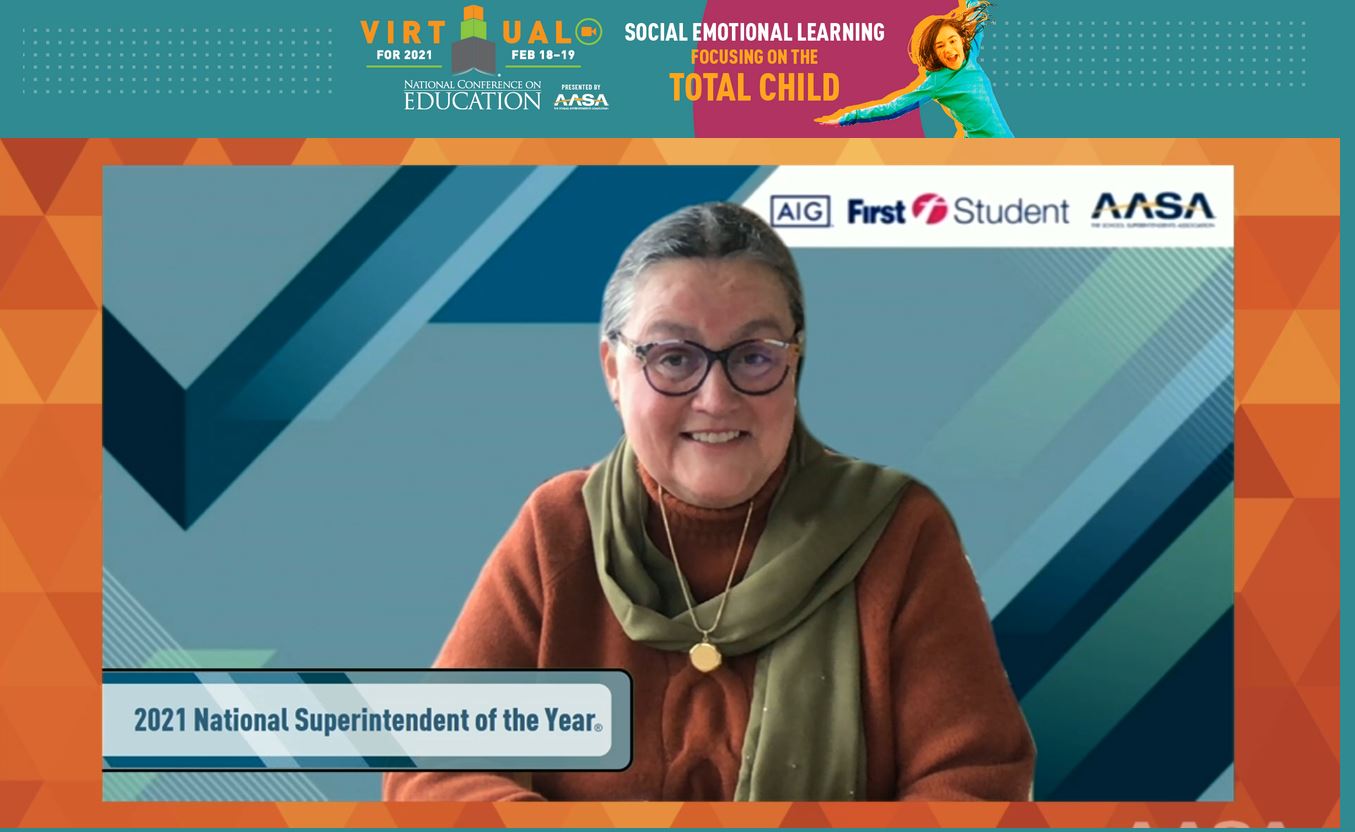By Merri Rosenberg |
As superintendent of reputedly the first school district in the country to move from in-person to remote learning when the pandemic hit a year ago, Michelle Reid exercised her long-groomed relationships with parents and staff for important payoffs.
Teamwork comes naturally to Reid, who leads the 24,000-student suburban Northshore School District in Bothell, Wash. As a collegiate basketball player who majored in chemistry, it’s not surprising Reid intuitively fosters collaboration and mentoring.
“People are not widgets,” she says. “They’re all motivated differently. They learn differently and have different roles. I’m tuned into that. In science, everything is interconnected. No data point stands alone — I can work on a few variables.”

She adds, “Getting feedback that improves performance, being comfortable in public performance” and continuing “to seek out feedback, even if it’s not positive,” informs her leadership approach. “Good leaders position themselves for the first pass. Great leaders position themselves for the second pass. There’s the constant duality of planning for the present with an eye on the future.”
The sharp pivoting that was required of Northshore a year ago comes comfortably to Reid, according to Tim Brittell, president of the Northshore Education Association for the past 16 years. “From our first phone call in February of 2020 dealing with the COVID emergency, we have stood solidly together to manage this crisis,” he says.
Reid’s deft ball handling now commands much wider attention. At the 1st General Session of AASA’s national conference on Thursday, Feb. 18, Reid was honored as the 2021 National Superintendent of the Year. She’s also Washington state’s reigning superintendent of the year.
Early in her career, when Reid taught 7th-grade general science, her students struggled to figure out how blood circulated through the heart. So their teacher put masking tape on the classroom floor and set up cardboard “valves” to illustrate the pathway, as a way for students to “walk through the heart,” she says. “They got it, and I realized there are ways to teach that are maybe not traditional, that students learn by doing.”
Reid originally expected to pursue a career in medical research, but instead has committed to a 41-year education tenure that includes a previous superintendency in Port Orchard, Wash. She delights in what education can deliver.
“The power to shape the next generation, the power in that work is huge,” she says, noting her commitment to expanding opportunities for the underserved and prioritizing equity.
During a pre-pandemic visit to a 5th-grade classroom, Reid was delighted to see four girls enthusiastically calculating the volume of a squash. Her feeling turned to dismay when she learned none of the girls planned to take a district entrance exam for higher-level math because it was administered on a single Saturday in one school.
Reid couldn’t ignore the moment. She directed her staff to offer more testing dates “to be sure that every child would have access.”
The pandemic has sparked opportunities for rethinking education. “When we re-open, schools of the future shouldn’t look like schools of the past,” Reid shared in an AASA webinar in January. When the 2020-21 school year began, teachers used professional conference days to meet with students and their families online. Afterward, Reid says teachers told her, “We have to do this every year before we make judgments.”
Reid expects to act on other lessons drawn from the COVID-19 disruption.
“We discovered learning spaces that transcend walls,” she says. “We learned that teachers can collaborate across buildings, that professional development can be delivered and that sharing best practices is much more visible and transparent.”
Still, Reid affirms, “Learning happens best in community. What we have to do is not let conditions define community.”
(Merri Rosenberg is a freelance education writer in Westchester County, N.Y., who writes for AASA’s School Administrator magazine.)
